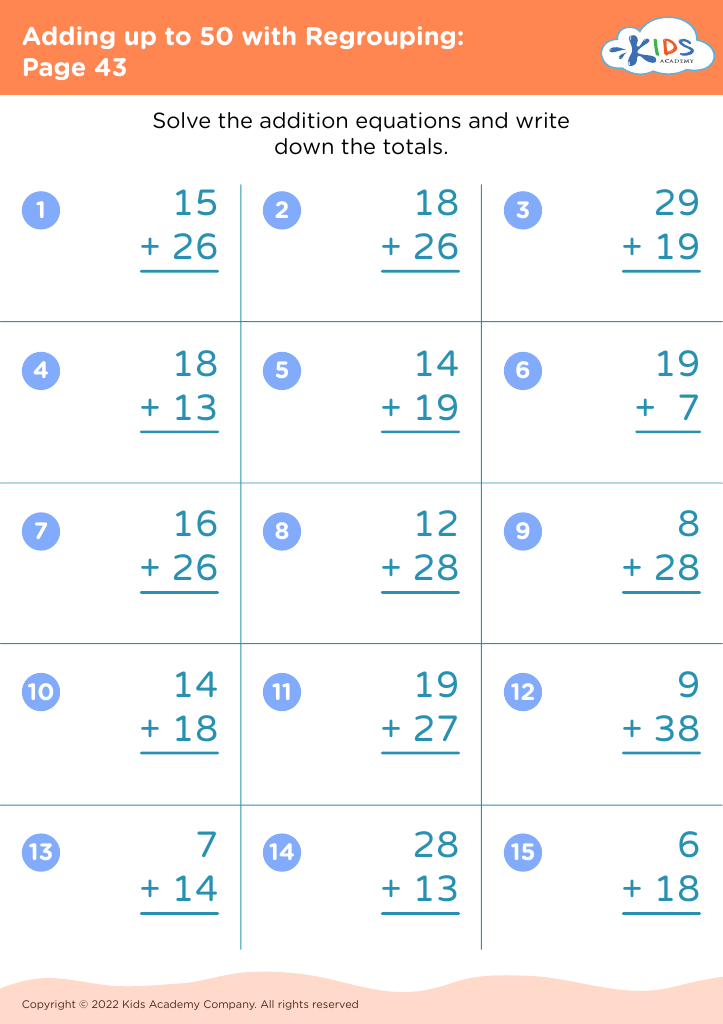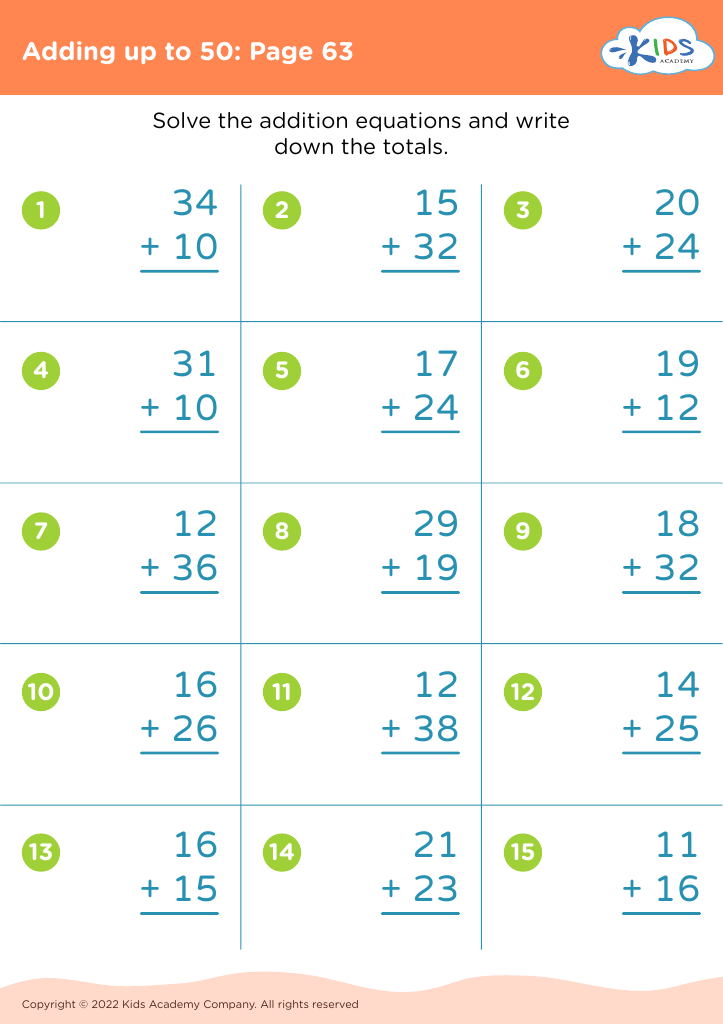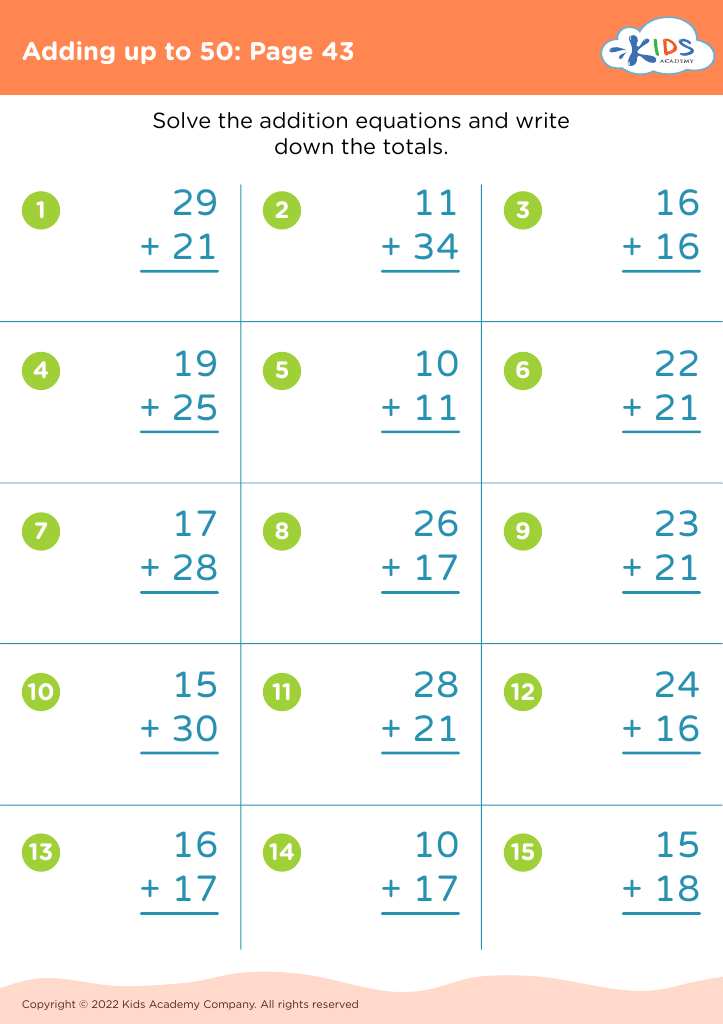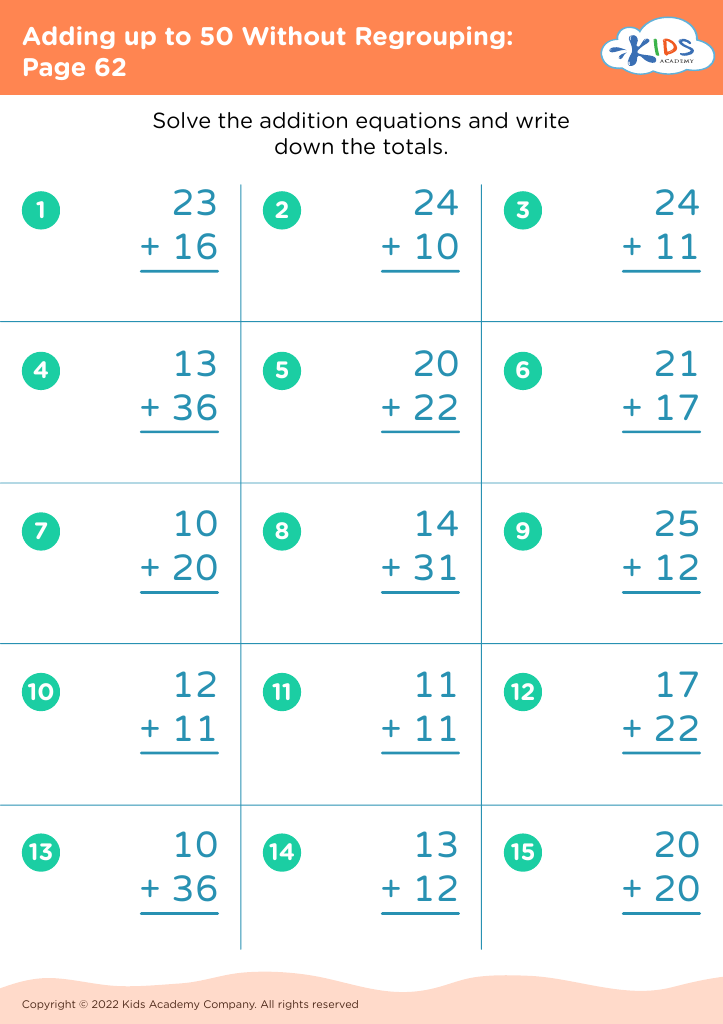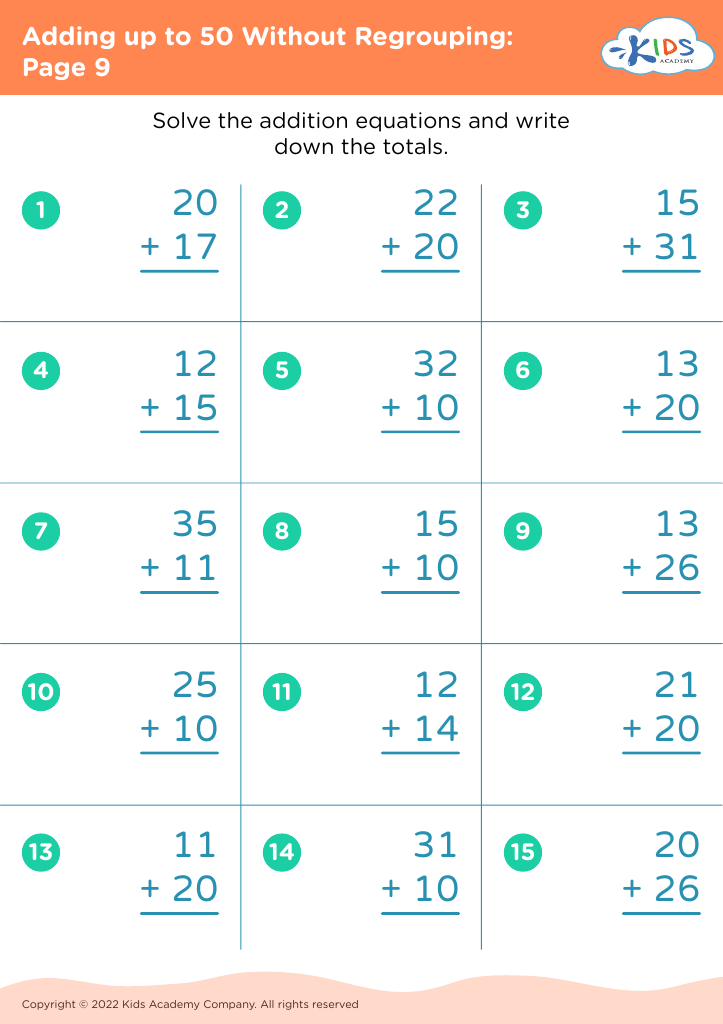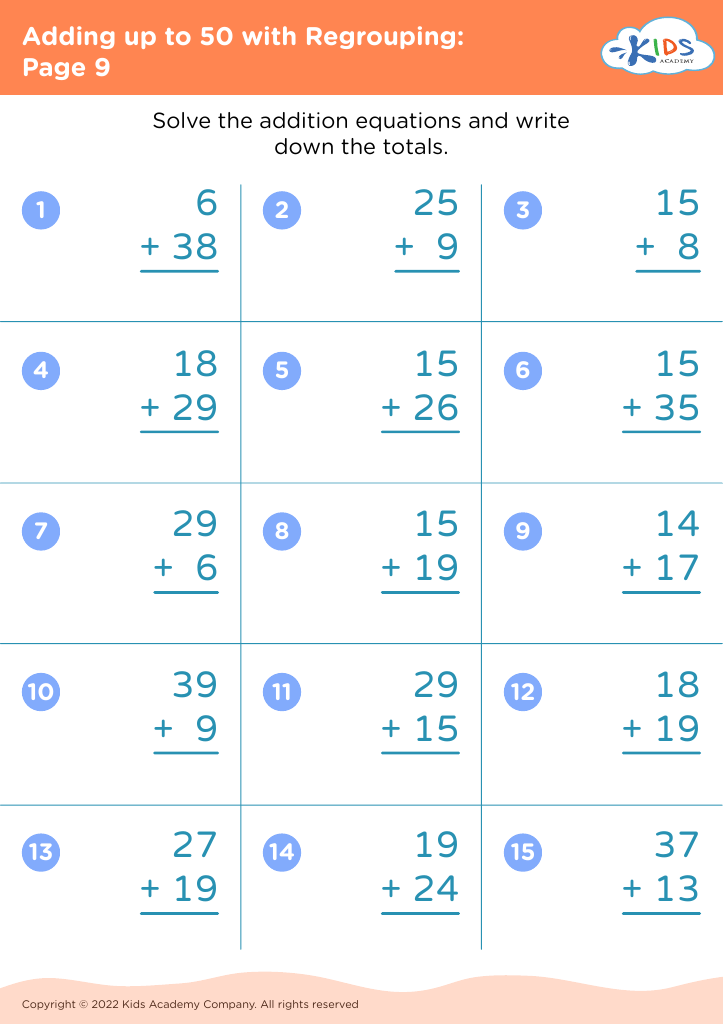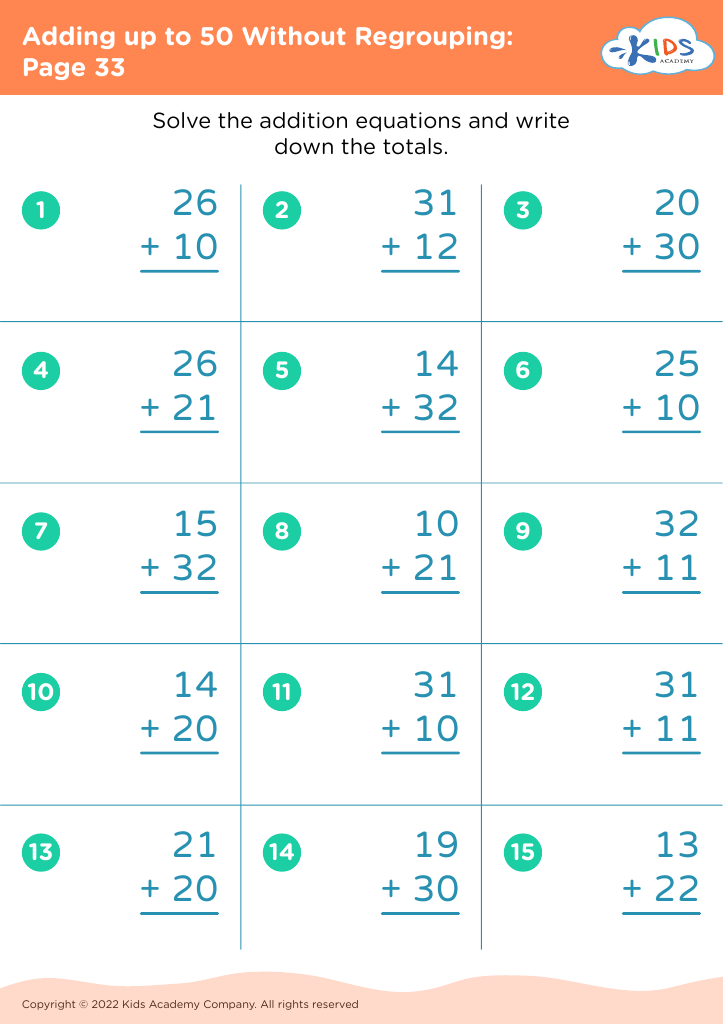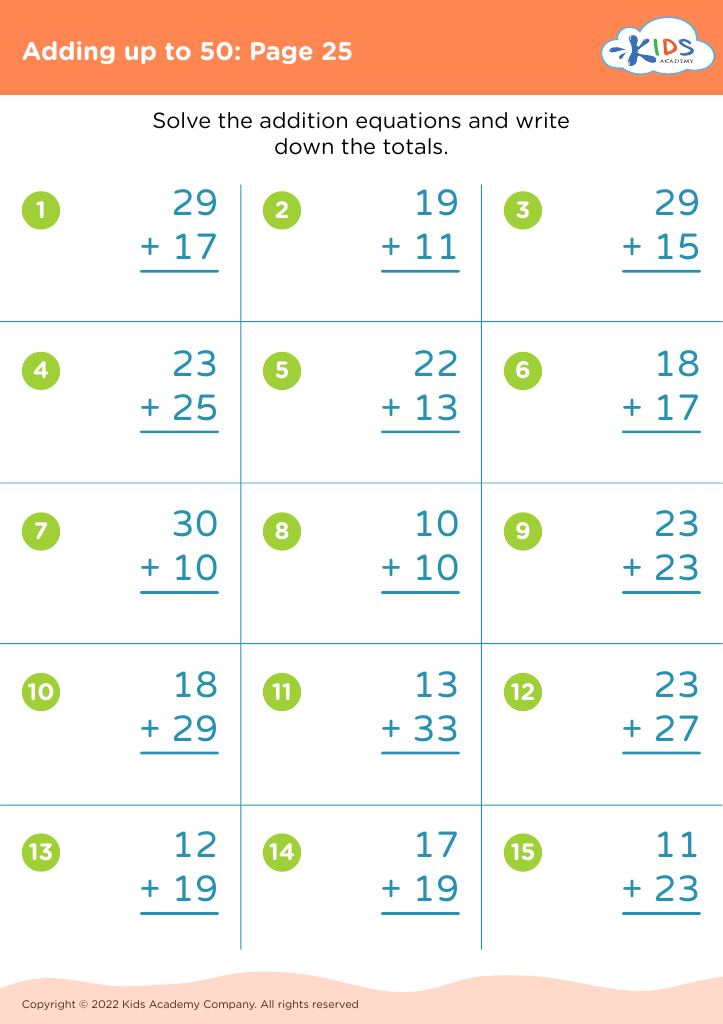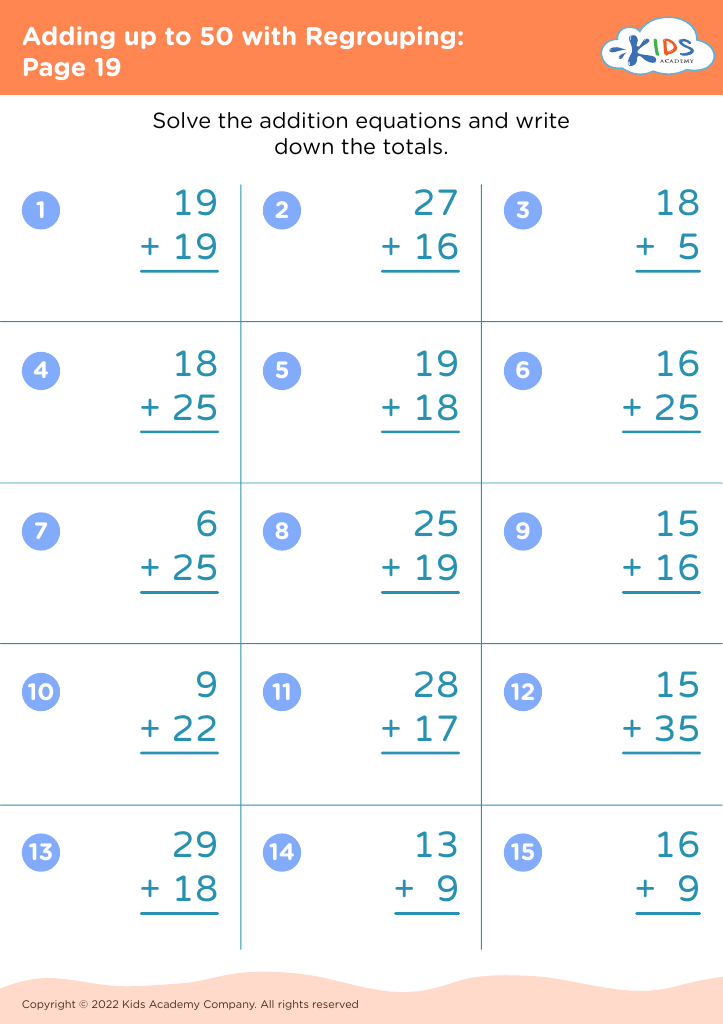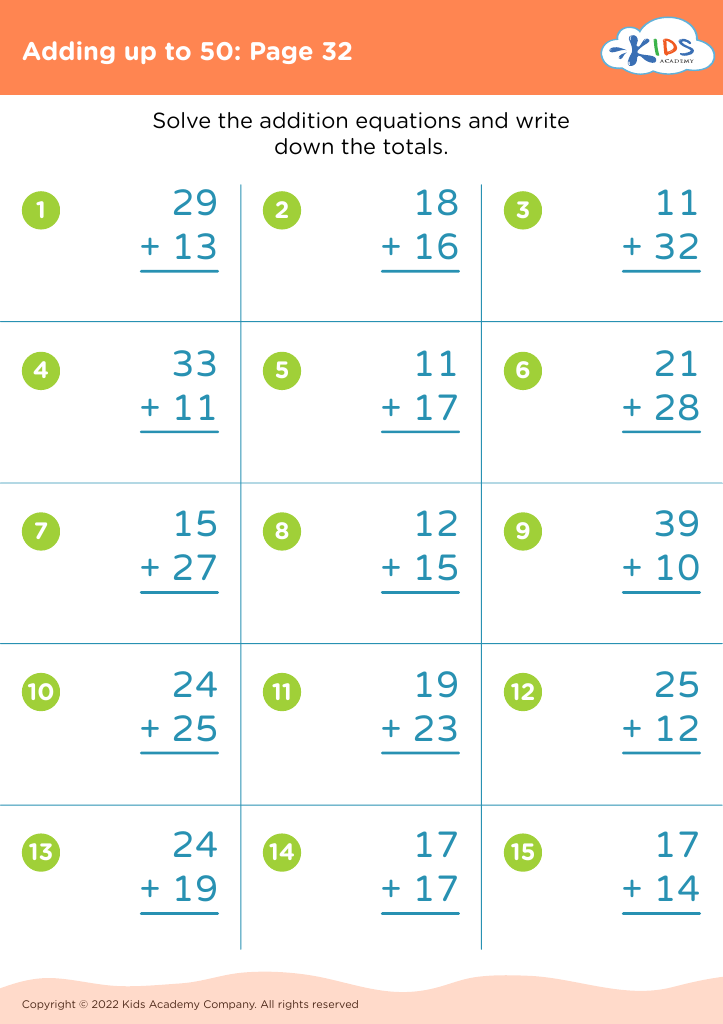Addition Practice Adding up to 50 Worksheets for Ages 4-7
16 filtered results
-
From - To
Enhance your child’s math skills with our “Addition Practice Adding up to 50 Worksheets” for ages 4-7. These engaging worksheets, designed by experts at Kids Academy, offer a fun way to build confident addition abilities. Suitable for preschool through early elementary, these printable resources provide ample practice and enjoyable challenges. Your child will develop a strong mathematical foundation, improve problem-solving skills, and achieve academic success. Discover a world of exciting activities that make learning addition up to 50 both effective and entertaining. Download now and turn math practice into an enjoyable adventure for your young learner!
Parents and teachers should care about addition practice adding up to 50 for ages 4-7 because this foundational skill sets the stage for future mathematical learning and everyday problem-solving. At this age, children are developing their number sense, which is crucial for understanding more complex math concepts. By practicing addition, youngsters enhance their ability to perform basic arithmetic, boosting their confidence and competence in math.
Frequent practice helps children recognize patterns in numbers, improving their ability to calculate quickly and accurately. This not only contributes to their success in school but also prepares them to handle real-life situations that require math, such as counting money or measuring ingredients in a recipe. Early mastery of addition fosters a positive attitude towards math, reducing anxiety and fear that can hinder learning.
Furthermore, learning to add up to 50 introduces children to strategies such as counting by tens and combining smaller numbers, which are essential skills for advanced math operations like subtraction, multiplication, and division. Investing time in developing these skills early on equips children with the tools they need for academic achievement and encourages a lasting curiosity and enjoyment of math. This early foundation makes future math concepts more accessible and intuitively understandable for young learners.


